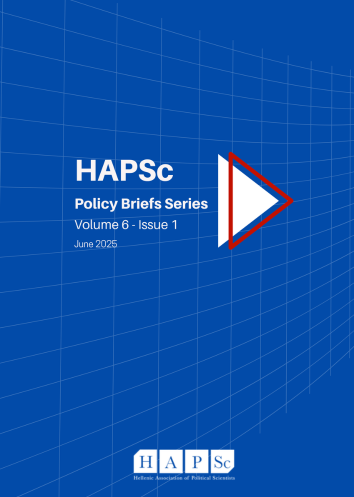Interdisciplinarity, Collective Intelligence, and the Role of the Humanities and Social Sciences in Greece's Socioeconomic Development

Abstract
This article explores the complex and underexamined relationship between the Humanities and Social Sciences (HSS) and Greece's economic and social development. Against a policy landscape dominated by a preference for Science, Technology, Engineering, and Mathematics (STEM), this article contends that the declining status of HSS in Greece is not an inevitable consequence of labour market trends, but rather a manifestation of a narrow policy focus. Using evidence from Greek and EU labour market data, this study highlights how the underutilization of high-skill labour, including but not limited to HSS graduates, reflects broader structural challenges within Greece's productive model. The article argues that interdisciplinarity and collective intelligence (two concepts where HSS have a comparative advantage) are indispensable to the transformation of the Greek economy. Through empirical evidence, comparative statistics, theoretical analysis, historical context, and cultural commentary, this contribution calls for a reinvigoration of HSS as a central pillar of sustainable and inclusive development in the era of technological complexity and artificial intelligence.
Article Details
- How to Cite
-
Gavroglou, S. (2025). Interdisciplinarity, Collective Intelligence, and the Role of the Humanities and Social Sciences in Greece’s Socioeconomic Development. HAPSc Policy Briefs Series, 6(1), 46–56. https://doi.org/10.12681/hapscpbs.43152
- Section
- Articles

This work is licensed under a Creative Commons Attribution 4.0 International License.
Authors retain copyright and grant the journal right of first publication with the work simultaneously licensed under a Creative Commons Attribution License that allows others to share the work with an acknowledgement of the work's authorship and initial publication in this journal.

